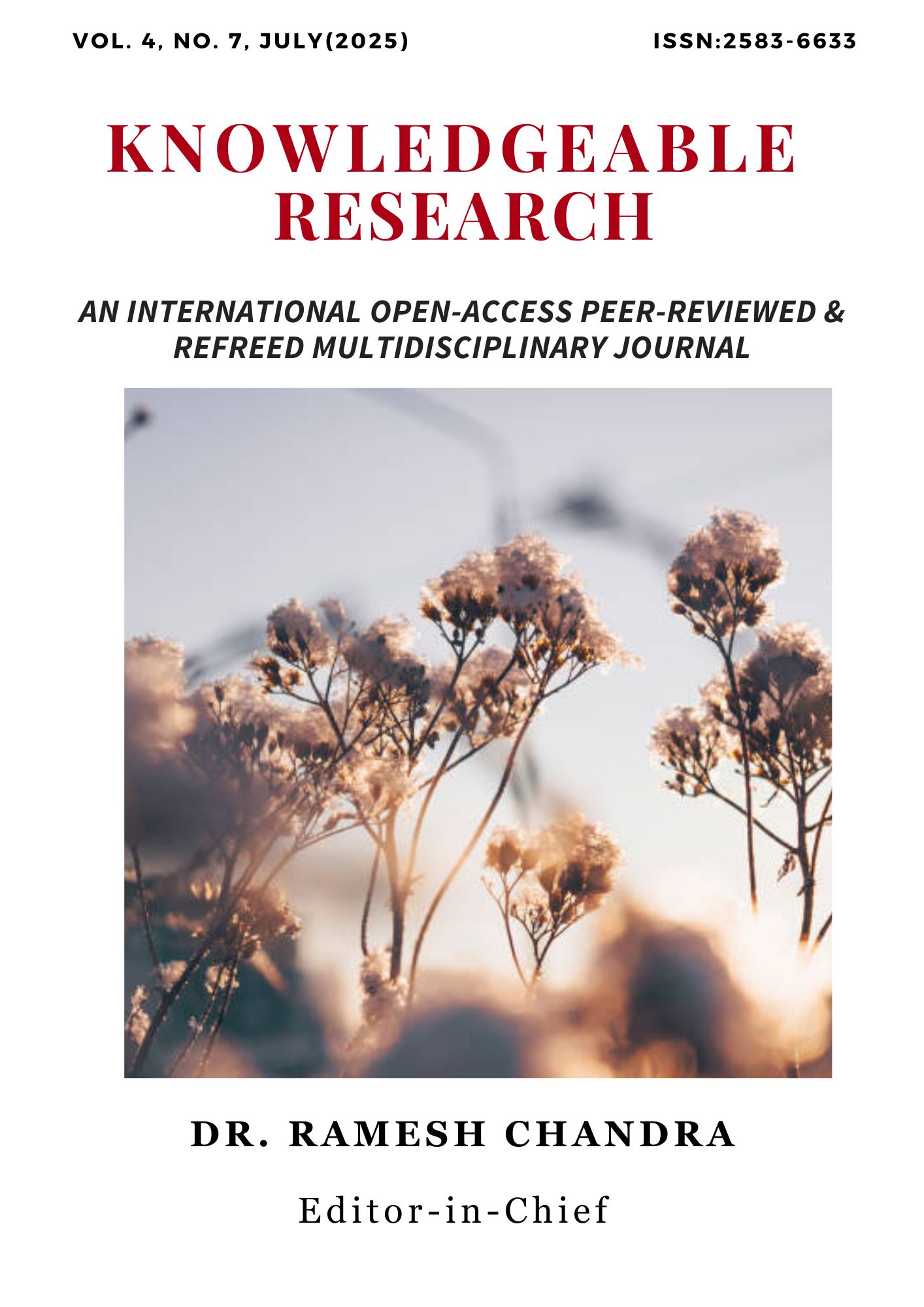Women's right to education in Indian knowledge tradition: A reflection
Main Article Content
Abstract
In the history of Indian knowledge tradition, the discussion on women's right to education holds special importance. In the Vedic period, efforts were made to make education available to all. Rigveda, Yajurveda, Atharvaveda etc. show the achievements of learned Rishis like Gargi, Maitreyi, Vachaknavi, Ghosha, who not only studied the Vedas but also achieved an equal position with men in philosophical debates. The dialogue between Gargi and Yagyavalkya on Brahmavidya is the highest cultural example of that time. In Indian Upanishads and Brahman texts, there is a common mention of women's participation in the field of knowledge. This mention leads to recognition of her role in women's education.
Education was not only important for religious or spiritual purposes, but was also considered necessary to perform the tasks and duties of society. However, in the later period, hesitation was seen in the field of women's education, behind which there were socio-political reasons and the influence of the patriarchal system. Smriti literature and medieval systems confined women to a domestic life, which restricted their intellectual development. Today, contemporary thinking questions the importance of women's unique intellectual abilities in the Indian tradition. From this historical scrutiny, women's right to education was of great significance to Hindu society, which can be revived in contemporary education to promote gender equality and knowledge.
Downloads
Article Details
Section

This work is licensed under a Creative Commons Attribution-NonCommercial 4.0 International License.

